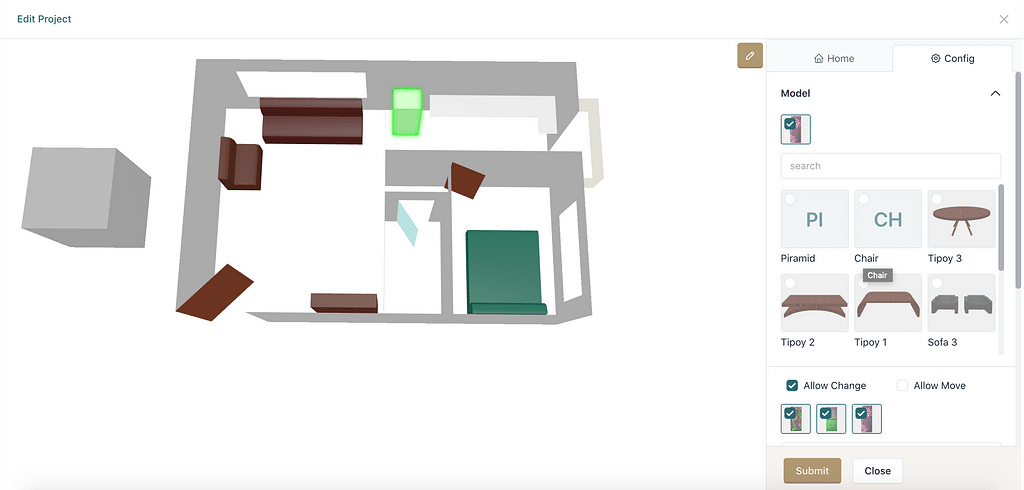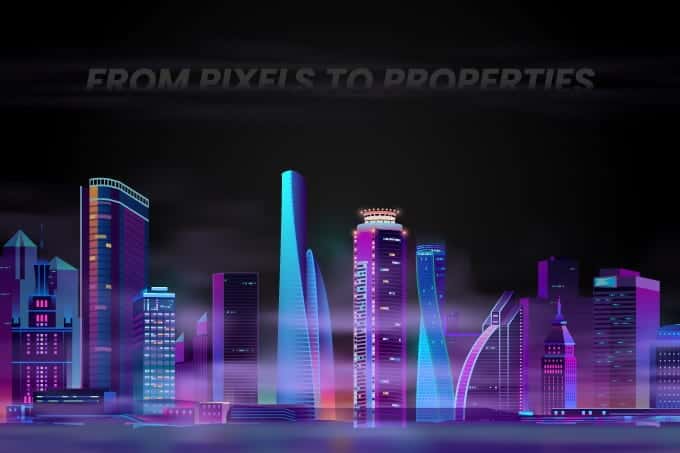From Pixels to Properties: The Potential of Virtual Real Estate in the Metaverse
- wtsverse
- June 23, 2023
Discover the journey from pixels to properties in the world of virtual real estate
Virtual reality has drastically revolutionized the way we perceive and interact with digital environments.
With the rise of the metaverse, a collective virtual shared space, the notion of virtual real estate has gained significant attention. In this article, we will explore the potential of virtual real estate in the metaverse beyond 2023, its implications, and the opportunities it presents.
As the lines between physical and virtual realities merge, the metaverse is poised to become the future of real estate investment. The global metaverse real estate market alone was valued at $821.9 million in 2021, with a projected increase to $5.95 billion by 2028. The metaverse real estate market has been in development for years. Some of the world’s largest businesses and retailers are already buying land and building virtual properties.
Virtual Real Estate? Is that even a thing?
Just as physical land is a valuable asset in the real world, virtual real estate holds significant value in the metaverse. Virtual land, buildings, and properties can be bought, sold, and developed within these digital realms. The scarcity of desirable locations and the potential for creating unique experiences make virtual real estate an attractive investment. Also, virtual real estate cuts away the toil of going about hunting for properties in the real world. You can browse, buy and sell properties at your own convenience and time in the virtual world.
Plenty of opportunities await…
The metaverse offers a multitude of economic opportunities for individuals, businesses, and developers. It serves as a platform for virtual commerce, allowing entrepreneurs to sell virtual goods, services, and experiences. Virtual events, concerts, and exhibitions held in the metaverse attract large audiences, leading to sponsorship and advertising opportunities.
Okay! But what about building stuff and making money?
Virtual real estate owners have the freedom to design and build their properties according to their vision. They can create virtual stores, entertainment venues, educational spaces, or even entire virtual cities. Monetization strategies include charging rent or admission fees, selling virtual goods, or hosting events that attract a virtual audience.

Investing in Virtual Real Estate? Yes, it’s possible!
Investing in virtual real estate can be a lucrative venture for those who understand the dynamics of the metaverse. The value of virtual properties can appreciate over time, especially in sought-after locations or popular virtual communities. Investors can profit from buying, developing, and selling virtual land, or by generating revenue through leasing or renting virtual spaces.

Not a piece of cake but still implementable!
While virtual real estate holds immense potential beyond 2023, there are several challenges and considerations to keep in mind. Technical limitations, compatibility issues, and evolving standards may impact the development and accessibility of virtual spaces. Additionally, legal and regulatory frameworks surrounding virtual property rights and intellectual property need to be established and upheld.
What are the predictions?
In the ever-advancing landscape of technology, surpassing the confines of 2023, the metaverse and virtual real estate are predicted to assume an ever more prominent role in our daily existence. The convergence of virtual reality, augmented reality, and blockchain innovations shall lead the way to an unparalleled era of immersive encounters, fortified security, and seamless transactions within the metaverse. As the change occurs, virtual real estate shall ascend to the ranks of a mainstream asset class, captivating the interest of investors, visionaries, and individuals from all walks of life.
Conclusion
So, to all the tech enthusiasts, step into the metaverse, a realm that transcends the limitations of 2023, where virtual real estate emerges as a catalyst for a groundbreaking digital revolution. Within these elegant domains, boundless opportunities for economic prosperity unleashed creativity, and vibrant social connections await. As the metaverse steps forward, surpassing the boundaries of time, virtual real estate shall wield its transformative power, reshaping our very existence, and redefining how we work, thrive, and immerse in the mysterious landscapes of the digital realm.

